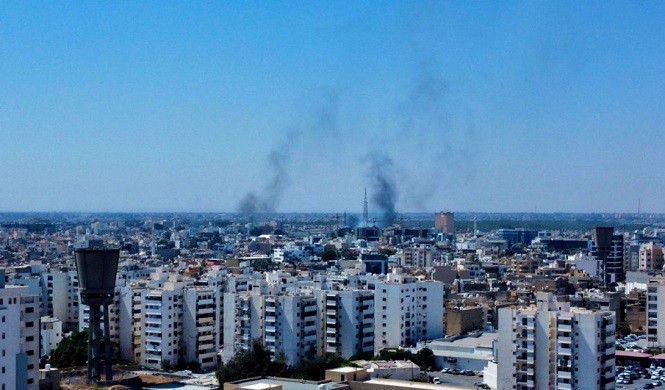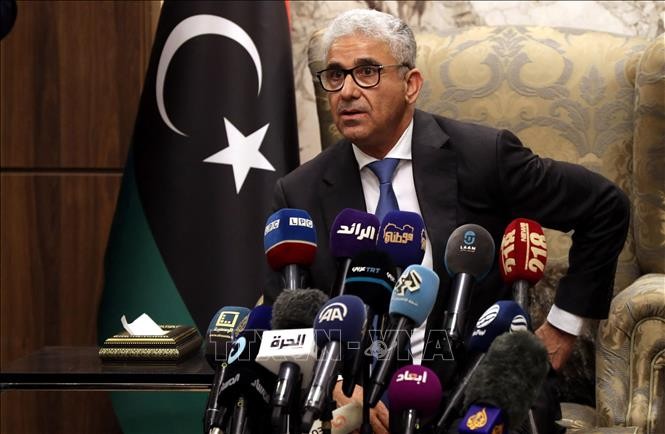(VOVWORLD) - Recent clashes between rival factions in Libya have pushed the North African country deeper into a political-security crisis that began during the 2011 Arab Spring. The UN and international organizations have called for urgent action to prevent violence from spreading and destabilizing the region.
 Smoke is seen in Tripoli, Libya on August 27, 2022. (photo: Reuters) Smoke is seen in Tripoli, Libya on August 27, 2022. (photo: Reuters) |
UN reports and regional sources say that fighting between supporters of two rival governments in Libya has left hundreds of people dead or injured. On August 27 clashes between militias in Libya's capital left at least 23 people dead and 140 others injured.
Fierce clashes continue
Clashes in Tripoli and other cities in Libya are the direct result of months of political tension that arose in February when the Parliament, headquartered in the city of Tobruk, appointed Fathi Bashagha Prime Minister to replace UN-backed Abdul Hamid Dbeibah, who was Prime Minister of the Government of National Unity (GNU).
This appointment immediately faced strong opposition and criticism from GNU. Mr. Dbeibah refused to transfer power to any government not legally elected, and GNU advocates said the Parliament in Tobruk is challenging the legitimate authority recognized by the United Nations.
A few weeks before the bloody fighting broke out, sources had noted the appearance of armed groups around Tripoli. In mid-August a few gunfights occurred, which erupted into intense fighting on August 26.
Observers say that although the past two days have been calm, recent casualties show the seriousness of the current confrontation between the two rival factions in Libya.
If not controlled, the clashes could flare up into a dangerous civil war with impacts far beyond the Libyan border. In recent years Libya has been a principal point of embarcation for refugees and illegal migrants from Africa crossing the Mediterranean to Europe. The crisis in Libya threatens the stability of many nearby countries like Egypt and Tunisia that are also facing security, economic, and social difficulties.
 Prime Minister Fathi Bashagha speaks to the media in Tripoli on Feb 10, 2022. (photo: AFP/VNA) Prime Minister Fathi Bashagha speaks to the media in Tripoli on Feb 10, 2022. (photo: AFP/VNA)
|
Promoting diplomatic measures to restore stability
Many countries and organizations including the UN have called for emergency measures to prevent the violence from escalating, restore stability to Libya, and create conditions for a parliamentary election that was originally scheduled for December, 2021, but was canceled for multiple reasons.
In an official statement on August 25, Stephane Dujarric, spokesman for UN Secretary-General Antonio Guterres, expressed his deep concern about the situation in Libya, saying the United Nations is watching developments, including movements to mobilize forces, and threats to use force for political purposes. The spokesman called on concerned parties to ease tensions and pay attention to the people’s need for political harmony and peace.
The United Nations Support Mission to Libya (UNSMIL) called on all parties involved to immediately put an end to hostile acts in order to ensure the safety of the people. The US Embassy in Libya issued a statement expressing deep concern about the fighting in Tripoli, and calling on all sides to exercise restraint and conduct dialogue to resolve differences.
The UN Security Council will hold a special session on the Libyan situation on August 30. The international community hopes that the meeting will adopt a resolution requesting parties in Libya to end their hostilities, write a new Constitution, and hold democratic elections under international supervision.